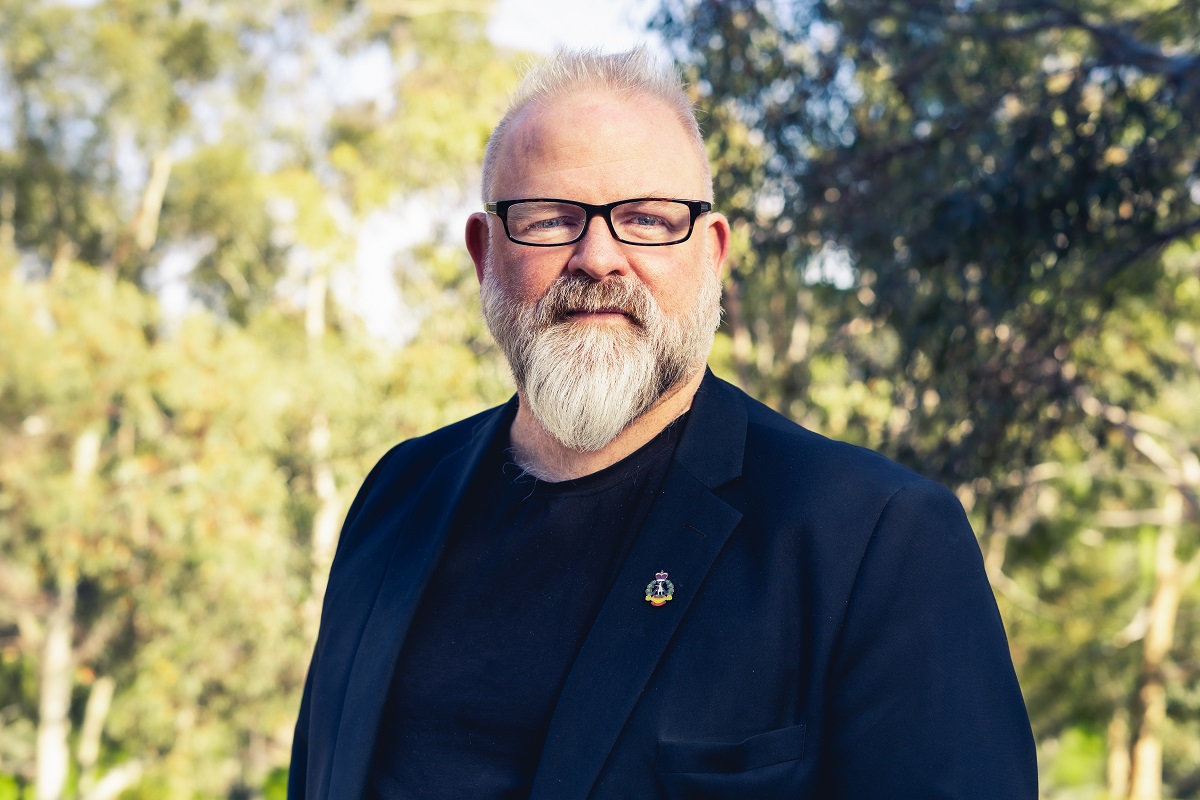
A proud veteran, Associate Professor Ben Wadham is passionate about helping other veterans and their families as they transition to civilian life. This has seen him recently awarded additional funding to support the Military Academic Pathway Program (MAPP) at Flinders.
What is your role and what does your work focus on?
I’m an Associate Professor of Sociology in Education. My work extends to criminology of the military and health policy, and a key element of my research is the wellbeing of veterans and their families, because veteran transition is a time of upheaval.
My key research focus is the Australian Defence Force, civil-military relations and veteran health and wellbeing. In 2018, I established the Open Door: Veteran Transition Integration and Wellbeing Research Initiative under the Orama Institute for Mental Health and Wellbeing. I’m the Director of Open Door and a co-deputy Direct of Wellbeing and resilience with the Orama Institute.
I currently lead projects on veterans in corrections, veteran education to employment pathways, male veteran suicide and institutional abuse within the military. Overall, my work is focused on contributing to better governance in the ADF and generating new opportunities for veterans and their families.
I joined Education at Flinders in 2003 after completing a PhD in Sociology on Australian race relations and Aboriginal Reconciliation in the Department of Sociology at Flinders University.
What journey brought you to this point in your career?
In the military, I served as a rifleman and as a military police Corporal. This experience generated my interest in the role of the military and its relationship to the state and civil society. The military is an institution of conformity, and it represents a particular kind of national character. I was intent on understanding these cultural forces beyond and within the military.
The infantry experience left me with questions about men and masculinity and the way men operate in groups and men’s place in society. Being in the military police built my interest in the military justice system, and the sum of all these experiences have been the pathway to my position now as the Director of Open Door and an international contributor on Defence and Veteran issues.
Can you describe a challenge in your life and how you dealt with it?
My experiences led to some health challenges but also generated skills and experiences of managing hardship and building resilience. My approach is to face life and employment challenges fearlessly with a positive and productive mindset towards myself and others.
What is something you are most proud of?
I’m proud of my family. I’m proud of my military service. I’m also proud of my capacity to persevere. In 2018, I lead a successful ARC Discovery project after many years of building military sexual assault as a public policy issue. There was significant resistance from Defence in the first decade, but now that the lid has been lifted on the issue and the silence has ended, I feel confident that more work can be undertaken in this important area.
What does a normal day look like for you?
Every day involves research, administration, leadership in the College and community liaison. I spend significant time building relationships within the defence and veteran sector. This includes speaking at sector events, meeting community leaders and generating research opportunities – but I also do my best to go for a walk or use the rower each day.
How do you like to relax or spend your spare time?
I’m most happy in the garden or out bush. I participate in outback expeditions with my veteran mates, undertaking some amateur history, archaeology and indigenous cultural heritage. I’ve always played guitar and enjoy spending as much time with my family as possible.

